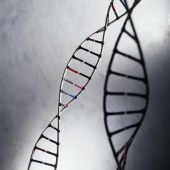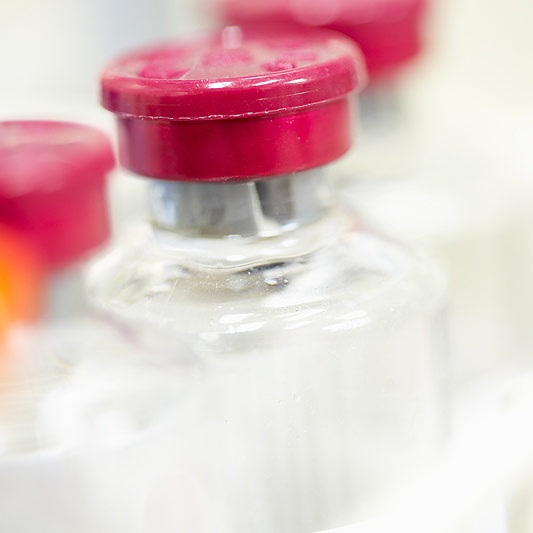
THURSDAY, April 19 (HealthDay News) — Scientists say they’ve identified the first gene directly linked to the most common form of psoriasis, known as plaque psoriasis.
“We have searched for almost two decades to find a single gene linked to plaque psoriasis,” study senior author Anne Bowcock, professor of genetics at Washington University School of Medicine in St. Louis, said in a university news release. “Individually, the rare mutations we have found likely confer a high risk for the disease, and we think they will be important in the search to find new, more effective treatments.”
In conducting the study, researchers used cutting-edge DNA technology to uncover a rare mutation in the CARD14 gene in a large family of European descent with a high prevalence of plaque psoriasis and psoriatic arthritis. They also found the mutation among multiple members of an extended family from Taiwan who had the condition, which is characterized by dry, raised, red patches covered with silvery scales.
The genetic mutation was also identified in a 3-year-old girl with a severe and rare form of psoriasis, but in this case the condition was not inherited. She developed the condition after being treated for a staph infection.
“This is significant because it tells us that CARD14 alone plus an environmental trigger is enough to cause psoriasis,” Bowcock explained. “You don’t need anything else. This really highlights the importance of finding rare mutations for common diseases like psoriasis.”
The findings suggest that immune cells are only a secondary cause of psoriasis. Skin defects, the researchers stated, are the main culprit behind the condition.
Noting that the family members studied who had psoriatic arthritis also had the CARD14 mutation, the study authors suggested the rare mutation may also be involved in at least one other form of psoriasis as well as a debilitating form of arthritis.
“Now, we have a much clearer picture of what is happening in psoriasis,” Bowcock concluded. “And now with all kinds of new therapeutic targets that lie within the CARD14 pathway, the field is wide open.”
The research was released online in advance of print publication in two separate papers in the May 4 issue of the American Journal of Human Genetics.
About 7.5 million Americans have psoriasis, the study authors noted.
More information
The U.S. National Library of Medicine has more about psoriasis.

